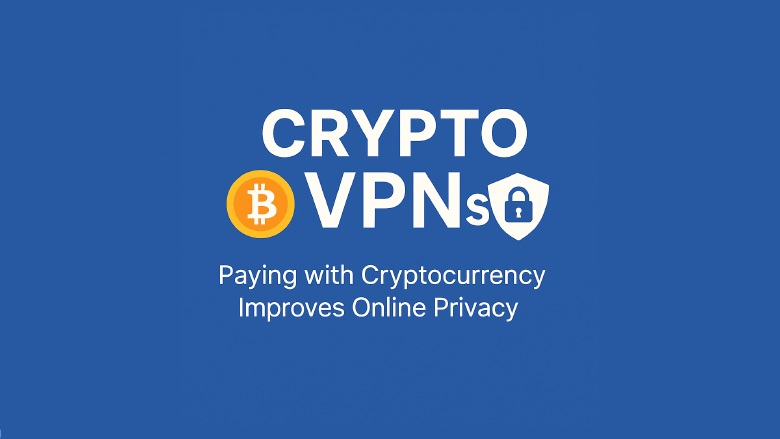Crypto VPNs: How Paying with Cryptocurrency Improves Online Privacy

Crypto VPNs: How Paying with Cryptocurrency Improves Online Privacy
VPNs are designed to give you online privacy. But here’s the catch: when you pay for a VPN with a credit card, you often leave a data trail that connects your real identity to the VPN account. That’s where crypto VPNs come in. They accept cryptocurrencies like Bitcoin or Monero, which lets you subscribe without giving away personal details. So even your payment stays private.
Let’s break down how this works, who benefits most, and what to watch out for.
See our picks: Best Crypto VPNs for 2025 →
What Is a Crypto VPN?
A crypto VPN is just a regular VPN with a privacy twist: it lets you pay with cryptocurrency. That might sound minor, but it’s a big deal if you care about anonymity. The best crypto VPNs also ask for very little personal info, and some (like Mullvad) don’t even need an email address. Add to that a strict no-logs policy, and you’ve got a service designed to keep you off the grid.
Here’s how the privacy part works:
- You pay with crypto – no bank info, no name, no billing address
- You can sign up anonymously – sometimes without even an email (learn more about KYC-free VPNs)
- They don’t log your data – no IP address, timestamps, or traffic history
And it’s not just theory. In one case, Swedish police showed up at Mullvad VPN’s office with a warrant. They left with nothing because there was no user data to take.
Why Use a Crypto VPN?
It really depends on what you’re trying to avoid. Here are some real-world examples:
For privacy-conscious users
If you just want to keep your browsing private, a crypto VPN gives you peace of mind that your payment and activity aren’t being tracked. No card statement. No leaked email address. Nothing to link you to that account.
For journalists and activists
In countries with censorship or surveillance, this stuff matters a lot. A crypto VPN helps avoid government scrutiny. You can:
- Access blocked sites
- Communicate securely
- Avoid leaving a financial trail
This is especially true when paired with features like multi-hop connections or Tor integration. If you’re serious about this, read our full privacy survival guide.
For crypto traders
Ironically, crypto traders need privacy too. Blockchain transactions are public. If someone links your wallet to your IP address, that could open the door to hacks, phishing, or doxxing. A VPN keeps your IP hidden when you trade, especially on public Wi-Fi or in countries with restricted exchanges.
Security Pros (and a Few Cons)
What you get:
- Encryption: Everything you do online is encrypted, even on sketchy Wi-Fi
- Anonymity: No link between you and your browsing history
- Safe payments: No risk of card details being exposed in a breach
- No-logs assurance: Top providers undergo independent audits and use RAM-only infrastructure
What to watch for:
- You still have to trust the provider – Not all VPNs live up to their promises. Look for audits or open-source transparency
- Crypto payments can be traced – unless you use privacy coins like Monero or follow best practices, Bitcoin transactions can still be linked to you
- Legal gray zones – In some countries, using VPNs (or crypto) can land you in trouble. Learn about VPN jurisdictions
- Mistakes break privacy – Logging into your personal accounts while using a crypto VPN kind of defeats the point
Legal Stuff You Should Know
VPNs are legal in most of the world, but there are exceptions (like China or the UAE). Crypto payments are also fine in many places but restricted or banned in others. That said, paying for a VPN with crypto doesn’t mean you’re doing anything wrong—it just means you care about privacy.
If you’re in a high-risk area, some VPNs offer obfuscated servers or stealth protocols (read how WireGuard and Tor compare).
Final Thoughts
Crypto VPNs aren’t just for hackers and coders. They’re for anyone who wants more privacy without handing over their life story to a VPN provider. When done right, they help you keep both your traffic and your identity to yourself.
Just remember: even the best VPN can’t protect you if you use it carelessly. Stick with trusted providers, avoid KYC traps, pay smart, and don’t forget the basics (like turning on the kill switch).
Privacy isn’t just about what you do online. It’s also about how you pay to get there.
🧭 Want a deeper dive? Explore how crypto VPNs work in more detail →
